44 label the atp molecule
Adenosine triphosphate - American Chemical Society Mar 8, 2021 ... Adenosine 5′-triphosphate, abbreviated ATP and usually expressed without the 5′-, is an important “energy molecule” found in all life forms. Electron Transport Chain | Biology for Majors I - Lumen Learning The electron transport chain is a series of electron transporters embedded in the inner mitochondrial membrane that shuttles electrons from NADH and FADH 2 to molecular oxygen. In the process, protons are pumped from the mitochondrial matrix to the intermembrane space, and oxygen is reduced to form water. The electron transport chain (Figure 1 ...
HBS: Labeling an ATP Molecule Diagram | Quizlet Start studying HBS: Labeling an ATP Molecule. Learn vocabulary, terms, and more with flashcards, games, and other study tools.
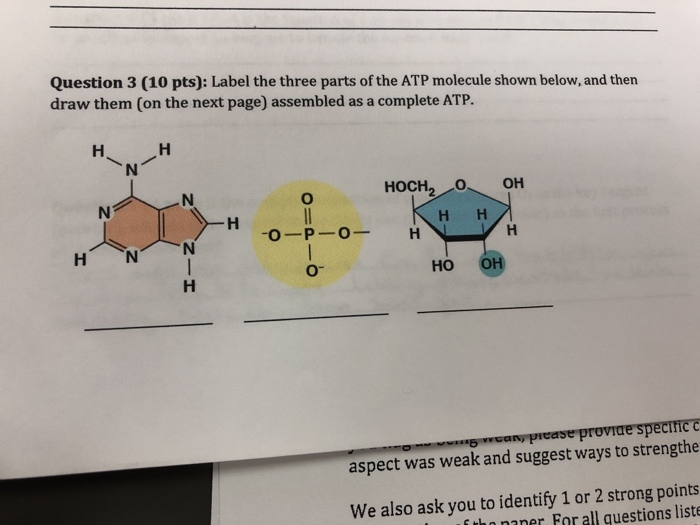
Label the atp molecule
Adenosine Triphosphate (ATP) - Definition, Structure and Function Oct 4, 2019 · Adenosine triphosphate, also known as ATP, is a molecule that carries energy within cells. It is the main energy currency of the cell, and it is an end product of the processes of photophosphorylation (adding a phosphate group to a molecule using energy from light), cellular respiration, and fermentation. All living things use ATP. Label the molecule of ATP. Show where the high energy bond is ... The ATP molecule is comprised of an adenosine molecule attached to three phosphates. The bond with the last phosphate is highly energetic. Adenosine triphosphate - Wikipedia Interactive animation of the structure of ATP Adenosine triphosphate ( ATP) is an organic compound that provides energy to drive and support many processes in living cells, such as muscle contraction, nerve impulse propagation, condensate dissolution, and chemical synthesis.
Label the atp molecule. ATP: How It Works, How It's Made, and Why It's Important Nov 4, 2022 · ATP is made of a nitrogen base (adenine) and a sugar molecule (ribose), which create adenosine, plus three phosphate molecules. If adenosine only has one phosphate molecule, it’s called adenosine monophosphate (AMP). If it has two phosphates, it’s called adenosine diphosphate (ADP). What are three parts of an ATP molecule? - Toppr ATP molecules are used by all living organism as energy to carry out life functions. Also notable, ATP stands for Adenosine Triphosphate. This molecule is ... Model of ATP Molecule - Perkins School for the Blind The model described is of a molecule of ATP (adenosine triphosphate) which is the energy currency of the cell because it provides energy for the cell's activities. Understanding the structure of this molecule leads to a clear understanding of the manner in which it provides needed energy to the cell. Adenosine triphosphate (ATP) | Definition, Structure ... Mar 20, 2023 · small organic molecules including adenosine triphosphate ATP is a nucleotide that consists of three main structures: the nitrogenous base, adenine; the sugar, ribose; and a chain of three phosphate groups bound to ribose. The phosphate tail of ATP is the actual power source which the cell taps.
Label the parts of an ATP molecule? - Answers Dec 18, 2013 · The three parts of an ATP, adenosine triphosphate, molecule are:A sugar (ribose)3 phosphates (the energy is stored in the unstable covalent phosphate bonds)Adenine (a double ring of carbon and... What are three parts of an ATP molecule? | Socratic ATP molecules are used by all living organism as energy to carry out life functions. Also notable, ATP stands for Adenosine Triphosphate. This molecule is composed of three parts: Adenine Ribose Three Phosphate Groups Here is a picture: Answer link Subject content | Biological molecules | ATP - AQA A single molecule of adenosine triphosphate (ATP) is a nucleotide derivative and is formed from a molecule of ribose, a molecule of adenine and three phosphate ... Chapter 7 Flashcards | Quizlet Adenosine triphosphate (ATP) is a molecule that provides energy for cellular functions. Label three major components of an ATP molecule. three phosphate,ribose,adenine Classify the following statements about the structure of an adenosine triphosphate (ATP) molecule as true or false. Reminder: Adenosine diphosphate is abbreviated ADP.
9.4: ATP, The Principal Phosphate Group Donor - Chemistry ... Jul 20, 2022 · The most important donor of phosphate groups in the cell is a molecule called adenosine triphosphate, commonly known by its abbreviation ATP. that there are essentially three parts to the ATP molecule: an adenine nucleoside 'base', a five-carbon sugar (ribose), and triphosphate. 1. Draw and label the parts of an ATP and ADP molecule. . 2 ... Jul 30, 2016 · Adenosine triphosphate (ATP) consists of an adenosine molecule bonded to three phophate groups in a row. In a process called cellular respiration, chemical energy in food is converted into chemical energy that the cell can use, and stores it in molecules of ATP. Adenosine Triphosphate - ATP - Bris.ac.uk The ATP molecule is composed of three components. At the centre is a sugar molecule, ribose (the same sugar that forms the basis of DNA). Attached to one side ... Solved 1. Draw and label an ATP molecule. Using your drawing - Chegg 1. Draw and label an ATP molecule. Using your drawing as a diagram, explain how ATP molecules release energy. 2. How is ADP different from ATP? ADD has 2 phosphate ATP has 3 phosphate 3. Explain why glucose is important. groups groups 4. What is glucose broken down into during glycolysis? 5. Where does glycolysis occur? = 6.
The ATP Molecule -Chemical and Physical Properties ATP Molecule The Adenosine triphosphate ( ATP) molecule is the nucleotide known in biochemistry as the "molecular currency" of intracellular energy transfer; that is, ATP is able to store and transport chemical energy within cells. ATP also plays an important role in the synthesis of nucleic acids.
1. Label the parts of the ATP molecule using the word bank. What is formed when you break a bond between phosphate groups in ATP? 4. How many TOTAL molecules of ATP are produced during the process of cellular respiration ...
ATP structure + function - Weebly These components are linked together into a single molecule through condensation reactions. Picture. ATP and energy release
Solved Adenosine triphosphate (ATP) is a molecule that - Chegg Answer to Solved Adenosine triphosphate (ATP) is a molecule that. Science; Biology; Biology questions and answers; Adenosine triphosphate (ATP) is a molecule that provides energy for cellular functions Label three major components of an ATP molecule NH, C. CH OmCH FT OH OH ribose deoxyribose guanine wo phosphate groups three phosphate groups adenine
ATP cycle and reaction coupling | Energy (article) - Khan Academy When reaction coupling involves ATP, the shared intermediate is often a phosphorylated molecule (a molecule to which one of the phosphate groups of ATP has been attached). As an example of how this works, let’s look at the formation of sucrose, or table sugar, from glucose and fructose 3 , 4 ^{3,4} 3 , 4 start superscript, 3, comma, 4, end ...
Draw and label an ATP model please - Brainly.com Oct 9, 2019 · Adenosine triphosphate (ATP) consists of an adenosine molecule bonded to three phophate groups in a row. In a process called cellular respiration, chemical energy in food is converted into chemical energy that the cell can use, and stores it in molecules of ATP. This occurs when a molecule of adenosine diphosphate (ADP) uses the energy released ...
Steps of cellular respiration | Biology (article) | Khan Academy NAD+ is an electron transport molecule inside the cristae of a cell's mitochondria. In glycolysis, the beginning process of all types of cellular respiration, two molecules of ATP are used to attach 2 phosphate groups to a glucose molecule, which is broken down into 2 separate 3-carbon PGAL molecules.
What are the three parts of an ATP molecule Flashcards What are the 3 parts of an ATP molecule adenine, ribose, 3 phosphate groups Energy is released from ATP when a phosphate is removed Organisms such as plants that make there own food are called autotrophs Plants gather energy with light-absorbing molecules called pigments Most plants appear green because chlorophyll doesn't absorb green light
Labeling an ATP Molecule - Labelled diagram Adenosine, Ribose, Phosphate #1, Phosphate #2, Phosphate #3, A little bit of energy, Some energy, A lot of energy.
Adenosine triphosphate - Wikipedia Interactive animation of the structure of ATP Adenosine triphosphate ( ATP) is an organic compound that provides energy to drive and support many processes in living cells, such as muscle contraction, nerve impulse propagation, condensate dissolution, and chemical synthesis.
Label the molecule of ATP. Show where the high energy bond is ... The ATP molecule is comprised of an adenosine molecule attached to three phosphates. The bond with the last phosphate is highly energetic.
Adenosine Triphosphate (ATP) - Definition, Structure and Function Oct 4, 2019 · Adenosine triphosphate, also known as ATP, is a molecule that carries energy within cells. It is the main energy currency of the cell, and it is an end product of the processes of photophosphorylation (adding a phosphate group to a molecule using energy from light), cellular respiration, and fermentation. All living things use ATP.
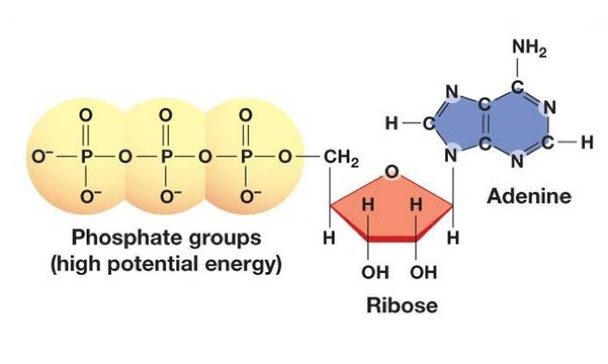







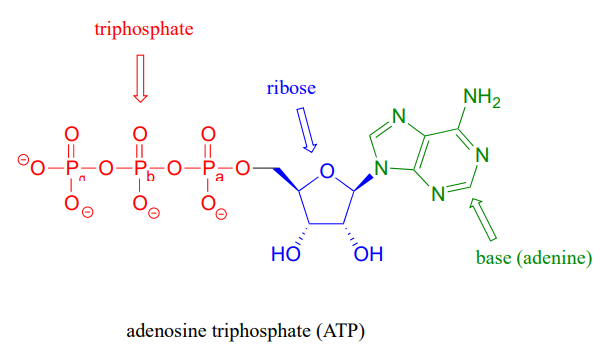
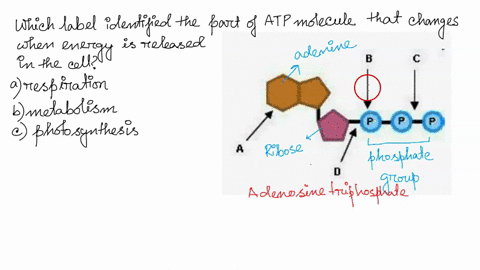
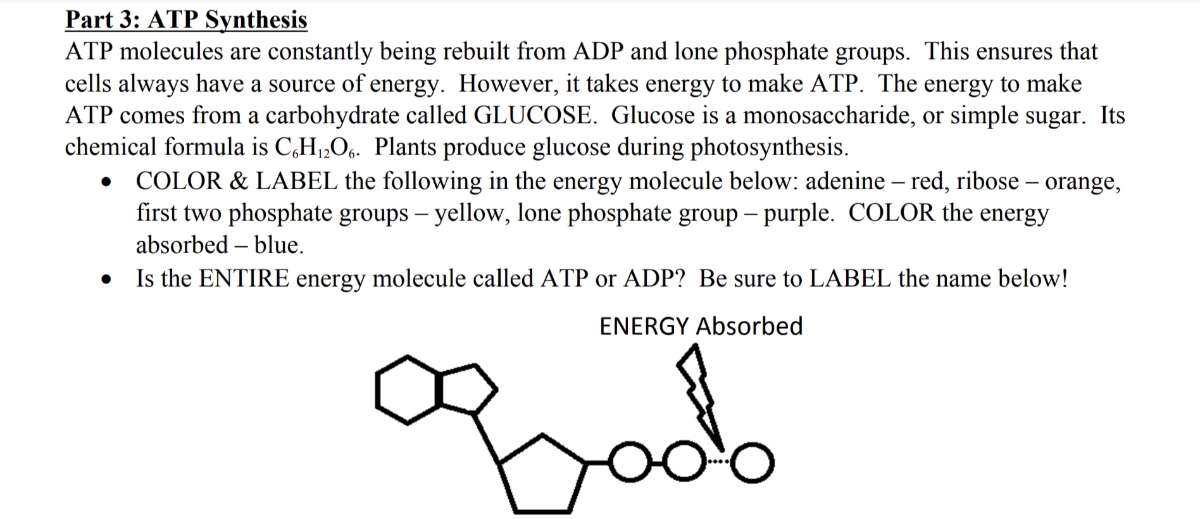

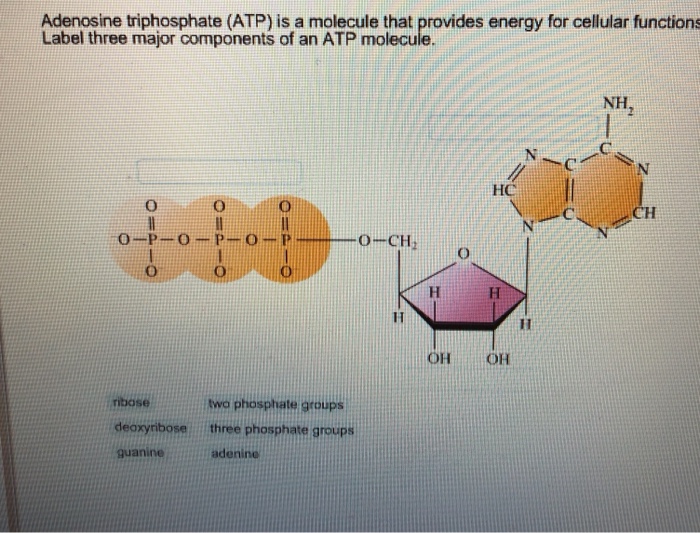
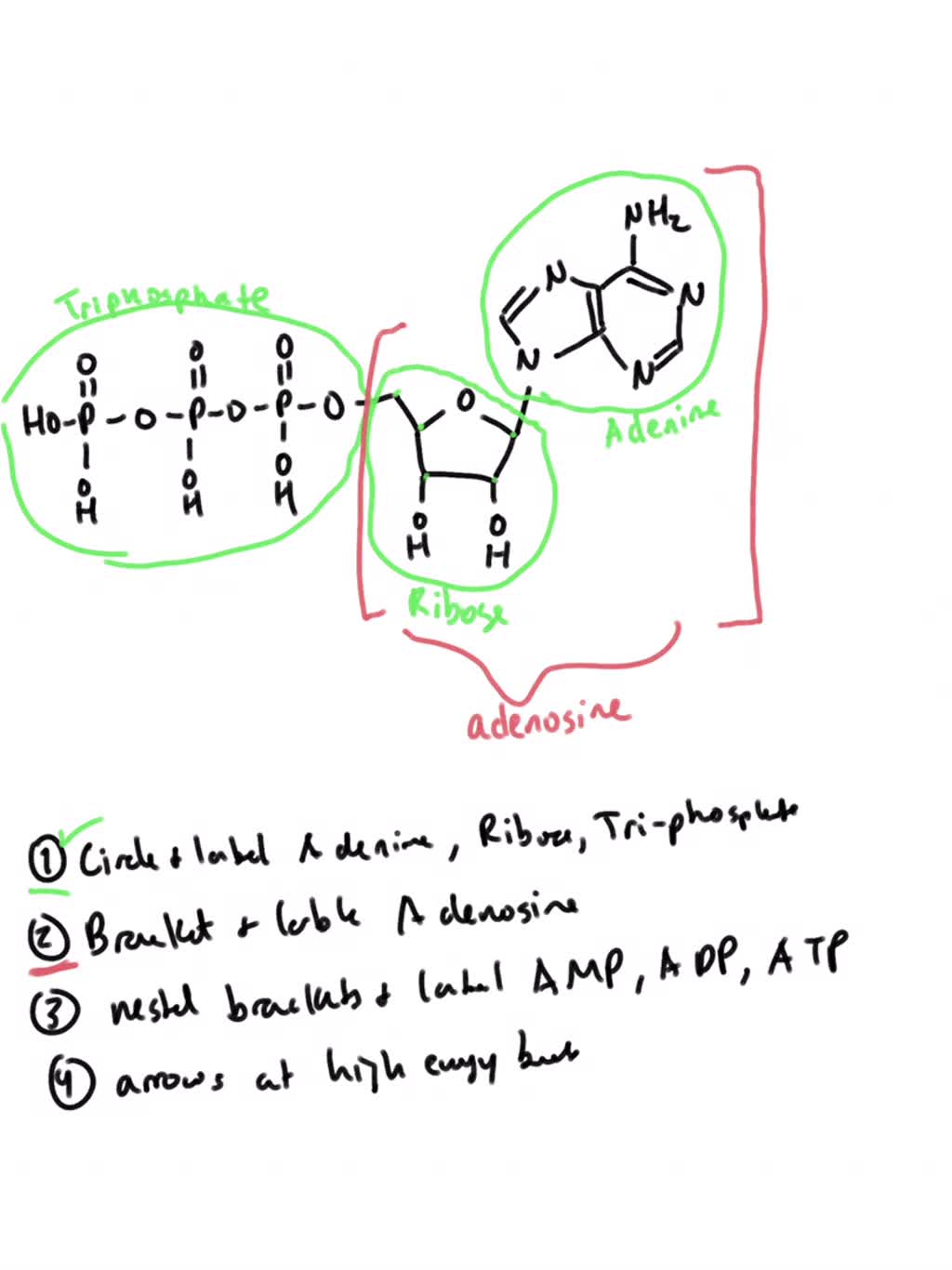

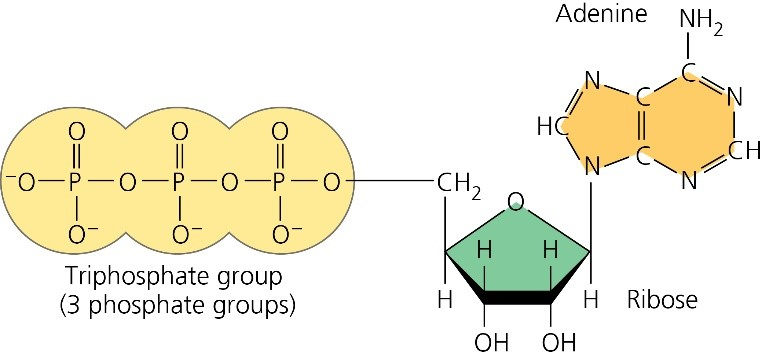

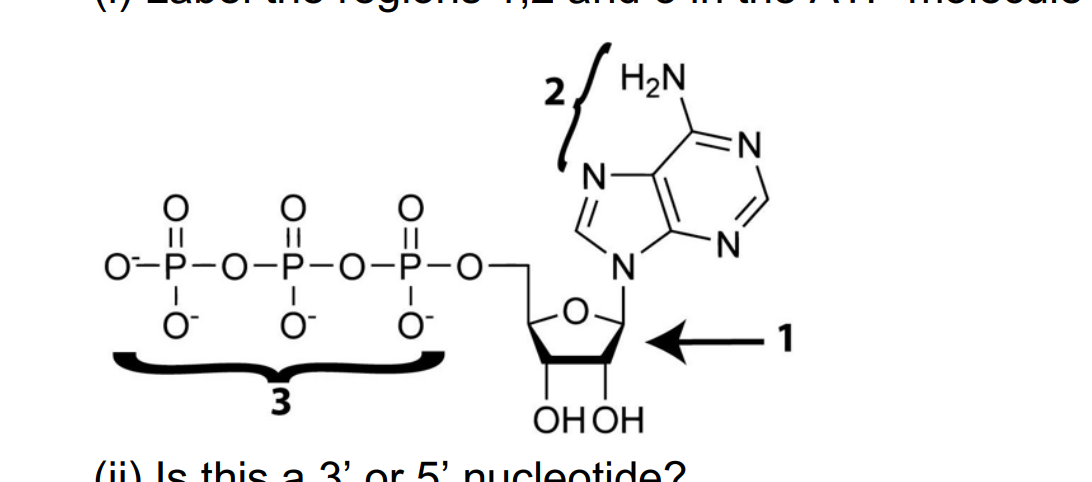









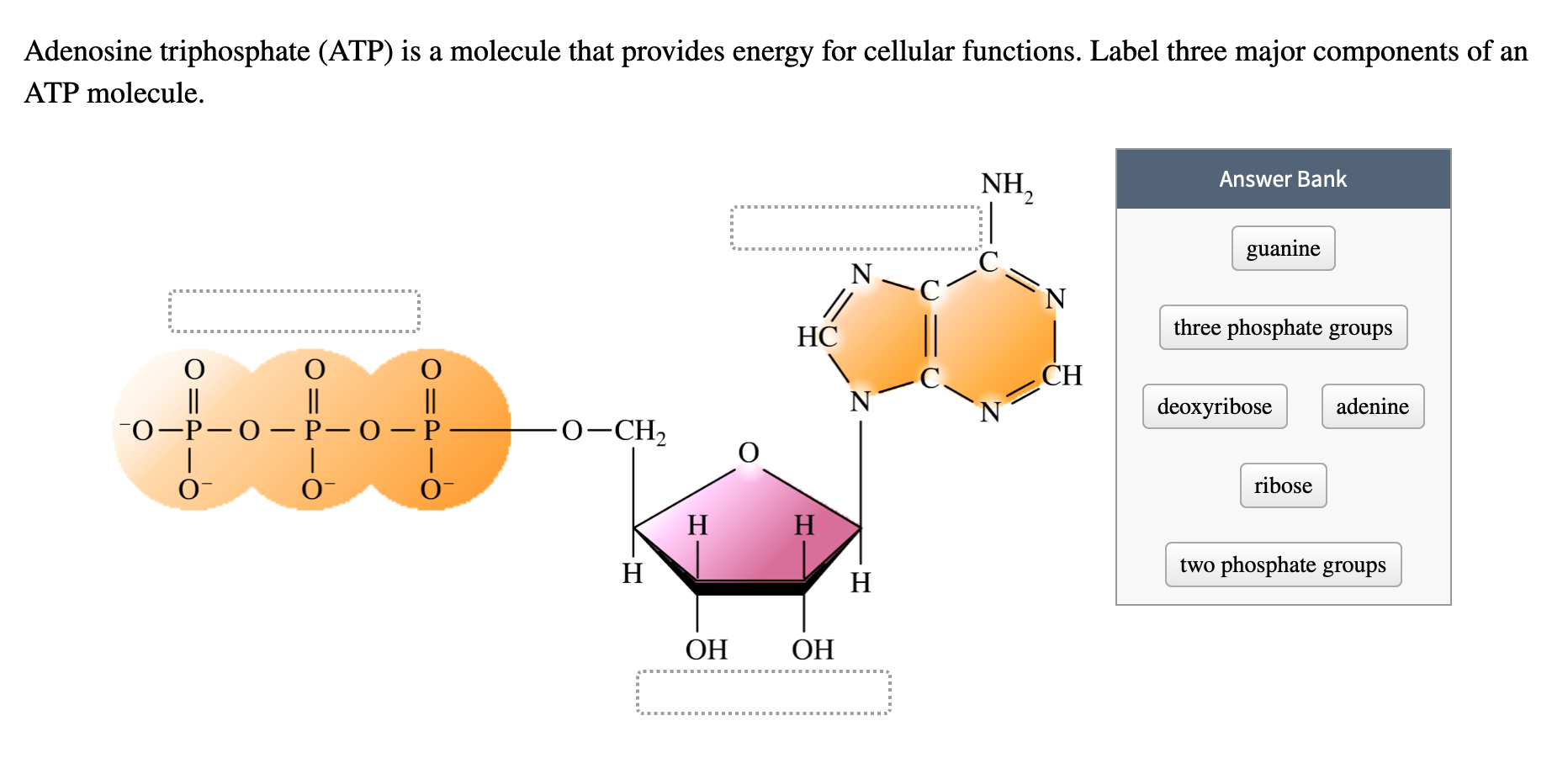


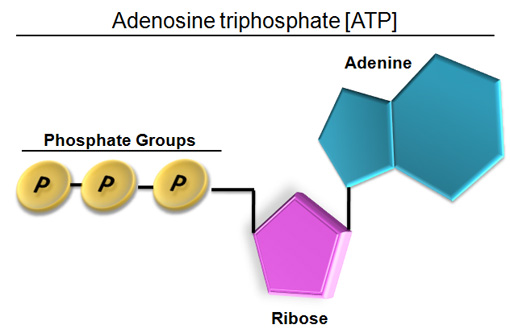




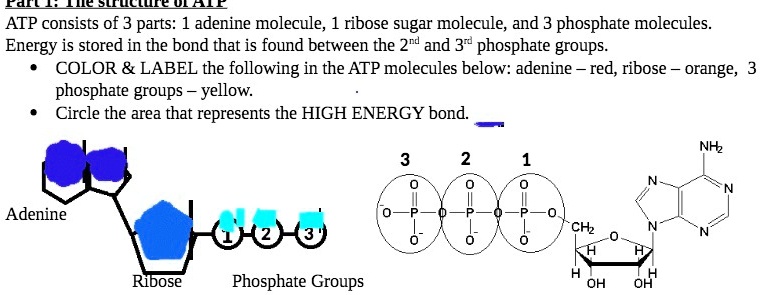

Post a Comment for "44 label the atp molecule"